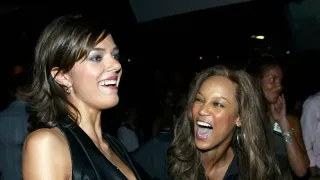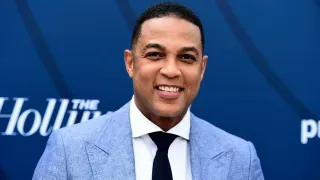February 4, 2017
Berlin & Beyond Stories
David Lamble READ TIME: 4 MIN.
There's a nice queer accent to the 21st edition of "Berlin & Beyond," the German-language film festival playing Feb. 3-5 at the Castro Theatre, concluding at SF's German cultural center the Goethe Institut (530 Bush St.) Feb. 6-8, with a special DocDay of nonfiction films at Oakland's Pro Arts Gallery (150 Frank H. Ogawa Plaza). The festival, which showcases new films from Germany, Austria and Switzerland, fills the widening gap between what the American art-house film circuit offers and the ever-expanding world of Eurocentric cinema.
This year's queer offerings include the gay teen romance "Center of My World" and Daniel Abma's documentary "Transit Havana", examining the reality of transgender rights and surgery programs in post-Fidel Cuba. Other highlights include the Castro opening-night film "Scrappin'," Max Zahle's train-robbery yarn tied to a failing family scrapyard business (2/3); and the Castro closing-night "Fukushima, Mon Amour," Doris Dorrie's exploration of a bond between two unlikely female friends centered on the site of the Fukushima nuclear reactor meltdown (2/5).
Center of My World This family comedy opens when 17-year-old Phil (scrappy blond Louis Hofmann) returns from summer camp to discover that his spirited sister and eccentric mother have stopped speaking to each other. The boy's life is enlivened by the appearance of dark-haired hottie Nicholas (Jannik Schumann) as a troublesome object of affection. Director Jakob M. Erwa makes effective use of having Phil narrate his story: "This is me. A small-town boy. Maybe a bit more gay than most. What I mostly do is hang out, chilling. Spending rainy afternoons in our library."
The film alternates between Phil's present predicaments and slow-motion flashbacks to a utopian childhood playing with his twin sister. The story is punctuated with snippets of un-selfconscious nudity from a highly attractive supporting ensemble. In a more queer-friendly world this lovely feature would be opening at a Bay Area art-house. (Castro, 2/4)
Transit Havana This not-to-be-missed doc from Daniel Abma begins with three adult transgender women in an elevator. The conversation is candid and hilarious. The occasion is the time every year when two plastic surgeons from Belgium and the Netherlands arrive in Havana to perform sexual reassignment surgery on five lucky Cubans chosen by lottery.
"For the beach, Iike to tuck my balls back. Otherwise I get stressed. Though no one cares. But still I do it for my own sake."
"I always have tape on me. Surgical tape. Today I went nuts looking for the tape. I couldn't find it."
"It's a really good one from the international drugstore. It's even transparent. It's really sticky. I have to pull it off. If I'm not well-shaved, you know! It's like waxing!"
Throughout "Havana Transit," the talk is candid, as these women in the making, and at least one new guy, discuss how the prospect of surgery and the elaborate bureaucracy of the still-Socialist Cuban government are both liberating and stressful.
"I don't feel good having male genitalia. It's not what I want. I never wanted it."
"When is your time?"
"I don't decide that. The committee decides it. If it was up to me, it would be now. I'm ready!"
We hear reflections from a one-time-male Cuban soldier. "On paper I'm still a man, Osmany. I'm a heavy artillery reserve staff sergeant. If war broke out, I'm the most qualified person to defend the Plaza de la Revolucion. If war broke out now, imagine when they came to get me and saw me like this. They'd freak out. They'd say, 'What happened to you? How did you get through the military without us realizing it?' Well, I got through by faking it very well."
Complete with great shots of Havana's old city and peeks at the classic 50s American cars lovingly maintained in home garages. (Pro Arts Gallery, 2/4; Goethe Institut, 2/7)
24 Weeks In German director Anne Zohra Berrached's drama, a cabaret star, Astrid (Julia Jentsch), six months pregnant, discovers that her baby-to-be is severely disabled. The decision whether or not to carry the child to term is framed like a cabaret performance. (Jentsch appears at the Castro screening, 2/4.)
Stefan Zweig: Farewell to Europe Writer/director Maria Schrader presents a tale of the torturous exile of Austrian writer Stefan Zweig, 1936-42. It's the tragedy of a man who loses his homeland to Nazi oppression, a fate he had predicted. (Schrader appears at the Castro screening, 2/4.)
Dark Fortune In Swiss director Stefan Haupt's drama, based on Lukas Hartmann's novel, an eight-year-old boy (Noe Ricklin) survives a road accident that kills his entire family. (Haupt appears at the Castro screening, 2/5.)
Heidi The popular 19th-century children's novel is brought to the screen by Swiss director Alain Gsponer. Starring Anuk Steffen and Bruno Ganz, it's the story of an orphan girl whose happiness tending to her grandfather's goats is interrupted when she's taken away from grandpa's lonely mountain cabin by her Aunt Dete. (Castro, 2/5, 10 a.m. children's matinee)
At Eye Level Winner in the Youth 4 German Cinema competition tells the story of an 11-year-old orphan boy whose encounter with his birth father becomes a fear-inducing event. (Castro, 2/3)
Hanna's Sleeping Dogs In director Andreas Gruber's story, a nine-year-old girl grows up Catholic in the Austrian town of Wels. Hanna is disconcerted to discover that her family roots are actually Jewish, leading to a social identity crisis. (Castro, 2/3)
The Culpable The Catholic priest/altar boy scandal is framed in Gerd Schneider's drama. A prison chaplain, Jakob, is dismayed when a brother priest is arrested under suspicion of sexual abuse. Jakob's struggle to reconcile the truth with his friendship with his disgraced friend becomes a riveting crisis of faith. (Castro, 2/4)
Close to Your Heart In director Ingo Rasper's story, a lonely female supermarket cashier, Emma, goes on a spree of wallet-pilfering. (Castro, 2/5)






